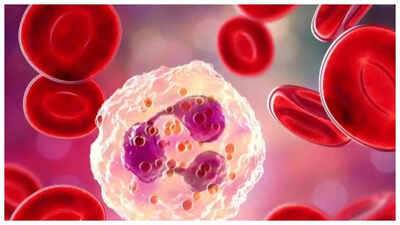You probably have heard a word inflammation in the last few years, and how can it cause many health problems, including weight gain, heart disease, arthritis, etc. but is there a way to reduce it? Let’s find out more:What exactly is inflammation?Inflammation is a natural reaction of the body to an injury or infection. Although short -term inflammation helps to heal the wounds and does not cause concern (say, as a fever), however, if chronic, inflammation can cause many health problems, as mentioned earlier. However, do you know that there is one mineral that can reduce inflammation naturally? And this mineral is magnesium. Let’s see how …

What is magnesium?Magnesium is a key mineral contained in products such as nuts, seeds, leaf greens and whole grains. Magnesium helps regulate the immune system and inflammation. If the level of magnesium is low, the body is usually more inflammation, which can lead to health problems.How does this reduce inflammation?One method of magnesium reduces inflammation by reducing the level of proteins called cytokines. In the language of the non -professional, cytokines are similar to messengers who speak the immune system to start or stop inflammation. Some cytokines cause inflammation, and if they are too high, it leads to chronic inflammation.Doctors say magnesium reduces the production of inflammatory cytokines such as TNF-alpha and IL-6. This is done by blocking the key path inside cells called NF-IVB (Nuclear Factor Kappa B). NF-ct controls the activity of many genes involved in inflammation. Magnesium prevents NF-iation become too active, which, in turn, reassures the immune response.A natural calcium blockerMagnesium also helps to reduce inflammation by balancing calcium in the body. While calcium is necessary for many functions of the body, too many calcium cells can cause inflammation and damage. Magnesium acts as a natural calcium blocker, preventing excessive calcium from entering cells and running inflammation.

Reduces inflammation markersInflammation markers such as C-reactive protein (CRP) and fibrinogen are the substances in the blood that increase during inflammation. Studies show that magnesium supplements can significantly reduce these markers, indicating a lower level of inflammation in the body.Magnesium helps the immune systemMagnesium supports the immune system by adjusting as it responds to threats. Low magnesium can cause a hyperactive immune response, which will lead to high inflammation. Increasing magnesium levels, the immune system becomes better balanced, reducing the risk of chronic inflammation and related diseases.Now let’s look at high magnesium products:Leafy green vegetablesNuts and seedsLegumeSolid grainsFruitFishDark chocolate











